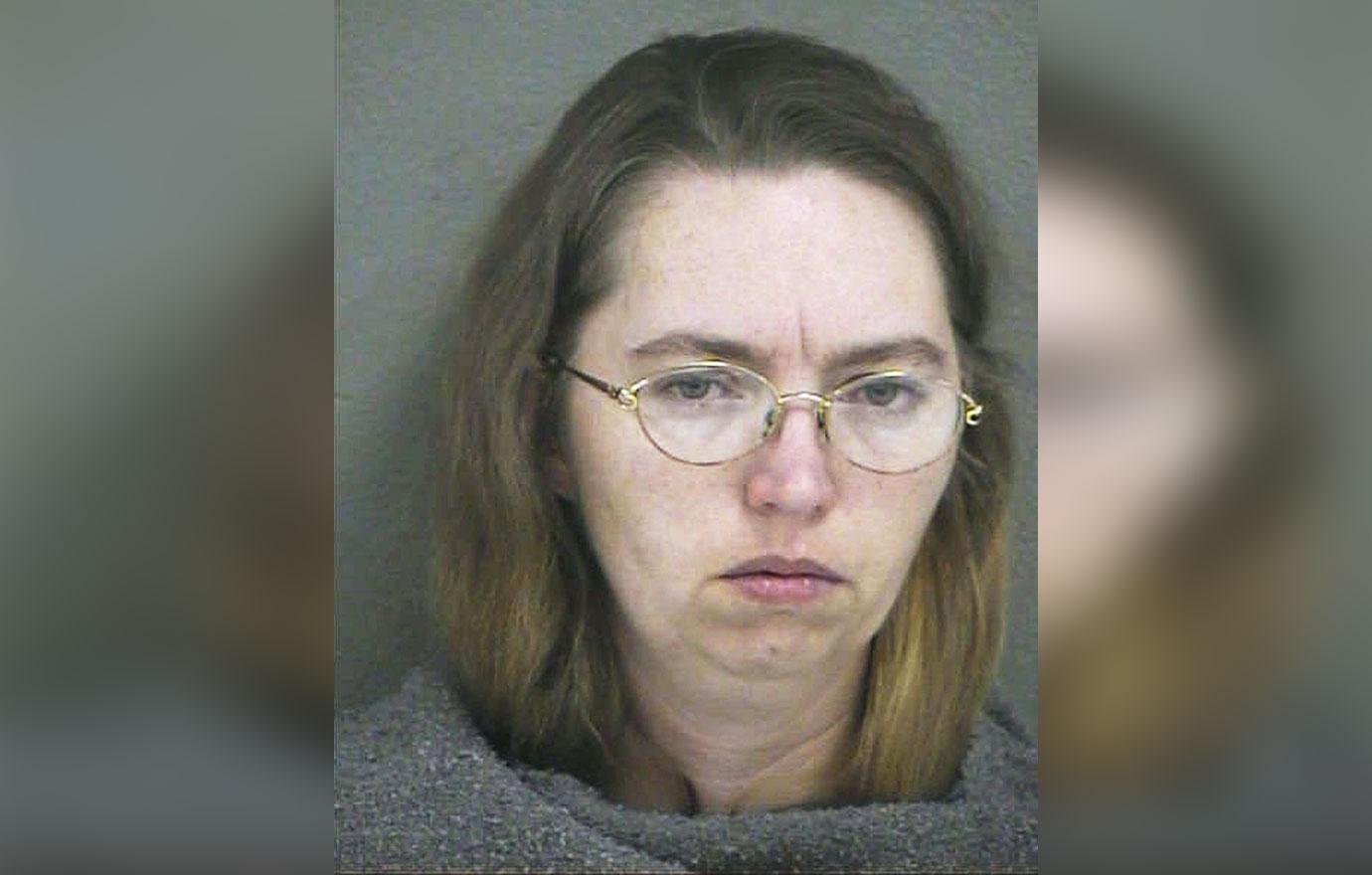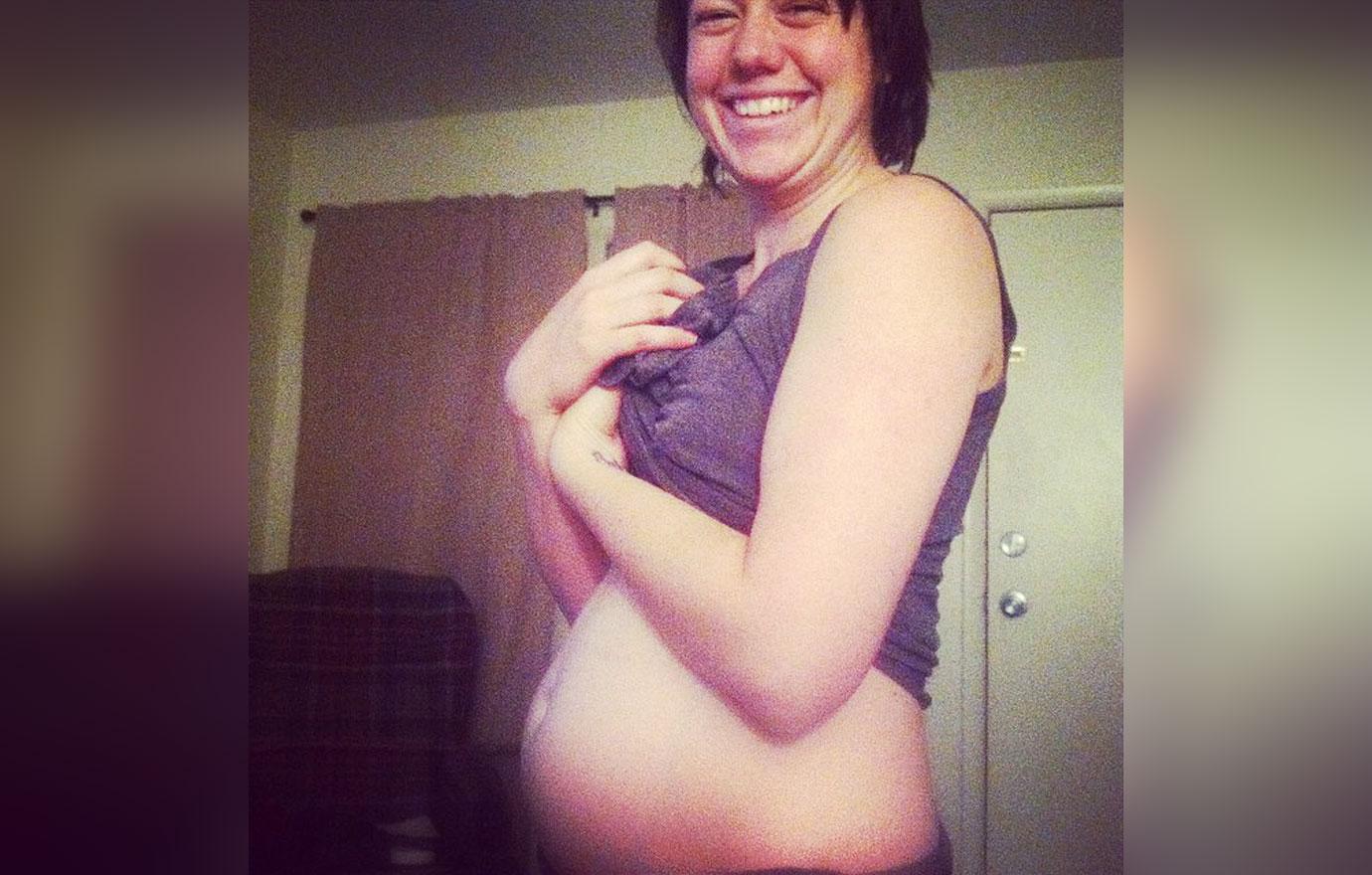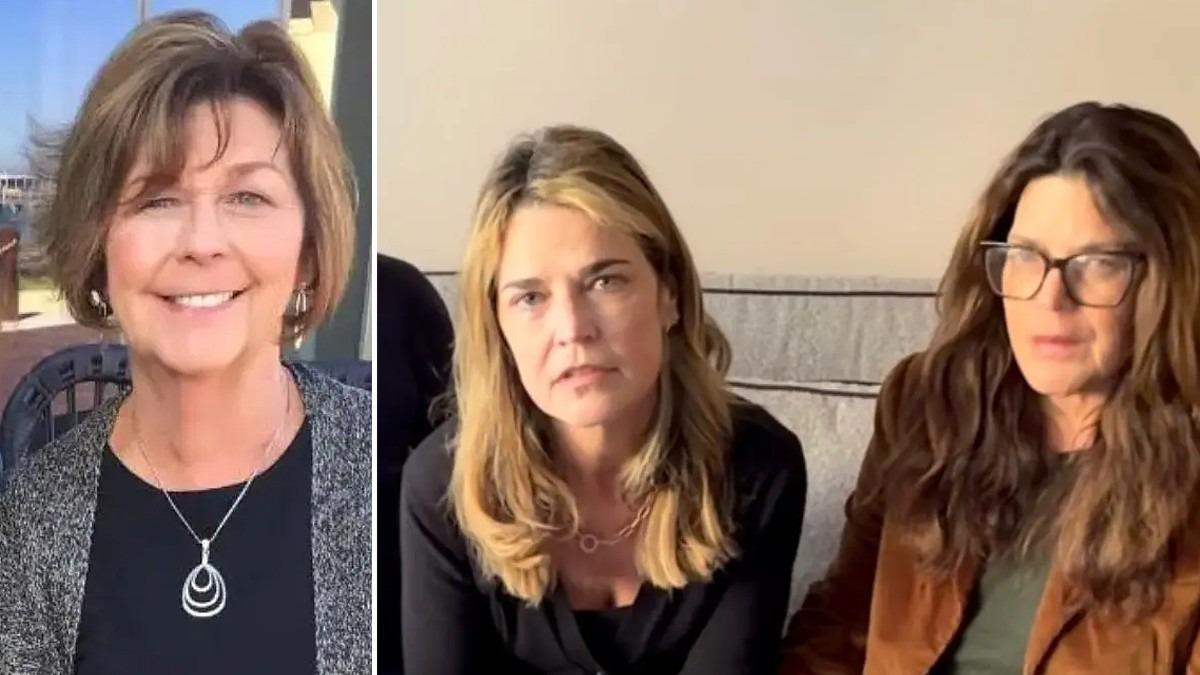The Rise Of The Womb Raiders, Inside The Horrific Crimes Targeting Pregnant Women Around The World
April 30 2021, Published 10:32 a.m. ET
In the final days of Donald Trump’s administration, the former President made good on his promise to increase the number of executions and continued his unprecedented and enthusiastic embrace of capital punishment.
In a final flourish, between January 13 and 16 this year, three prisoners were put to death, including Lisa Montgomery, the only female inmate in federal death row, the first female federal prisoner executed in 67 years, the first woman executed in the United States since Kelly Gissendaner in 2015, and the first person executed in the United States in 2021.
It’s highly likely that, had her defense’s attempts to stay the execution at the final hour succeeded, she would be alive today given President Biden’s campaign promise to halt federal executions.

Lisa Montgomery
Instead, she was executed by lethal injection on January 13, 2021, at the United States Penitentiary in Terre Haute, Indiana. She had no last words and was pronounced dead at 1:31 AM EST.
In late December, Montgomery's legal team submitted a petition arguing that after a lifetime of abuse and torture she was too mentally ill to be executed and deserved mercy.
But the crime Montgomery was convicted of was no ordinary murder and so horrific, few had sympathy for the argument. In a calculated and planned attack, Montgomery posed under a false identity, groomed her pregnant victim Bobbie Jo Stinnett, and then cut the baby from her stomach. The girl miraculously survived and Montgomery, who had faked pregnancy, passed it off as her own.
The crime is often referred to as fetal abduction. In the tiny town of Skidmore, Missouri, where the murder was committed, many believed the final moments of Bobbie Jo Stinnett were so gruesome, the death sentence was warranted.
Indeed, the crime remains a black stain on the community, which has never recovered from the media frenzy that followed the case.
Survivors of fetal abduction crimes are rare. Victims are either killed before their babies are taken, or die during the attacks. Babies rarely survive either.
Ellie Wilkins is one such survivor. She fought for her own life and the life of her unborn child as she was beaten, strangled, and stabbed in the neck by her attacker. She remembers everything with agonizing clarity until the moment she lost consciousness.

Ellie Wilkins
“There was a lot of blood. I remember specific thoughts. I thought about my unborn daughter, Aurora, and started to fight more, but my arms were pinned down so I was completely helpless. My last thought was a real sense of bewilderment. ‘How can this be how I die?’ Then everything went black,” she explained.
It was March 18, 2015, in idyllic Longmont, Colorado. Ellie was seven months pregnant and living in nearby Boulder with her partner and Aurora’s father, Dan. She didn’t know her attacker, Dynel Lane. She had been lured to the stranger’s house after answering a Craigslist post offering free baby clothes. Once inside, Lane dragged Ellie into her daughter’s bedroom where she beat and choked her. What happened next was straight out of horror movies.
While Ellie lay unconscious on the floor, Lane, 34 at the time, cut Aurora from her womb with a kitchen knife and abducted the tiny infant. Lane fled, assuming her victim was dead. Miraculously, Ellie survived. Aurora did not.
Ellie, who was 26 at the time, regained consciousness and didn’t know where her baby had gone.
"I could feel my insides on the outside of my body, so I pulled my maternity pants up over them to keep them in,” she recalls. “It registered that they were my intestines, but I also thought, ‘I hope to God that’s Aurora.’”
Former nursing assistant Lane, now 40, was a mother of two daughters, who were teenagers at the time of the crime. She was living with her husband, David Ridley. In July 2002 she lost her son, Michael Alexander Cruz, who drowned in a fishpond. Family members described her as a caring person. However, she had feigned pregnancy for months, creating an elaborate hoax by posing in photos with a distended belly.
Friends remarked after that she was so petite it was hard to tell whether she had a bump. She had even named her fake baby James and showed her daughters an ultrasound scan. Friends had held a baby shower for her. Ridley had become frustrated and suspicious of her behavior because she had continued to miss or cancel doctor’s appointments.
He had delivered an ultimatum that she go to the doctor or move out. Backed into a corner, Lane began casting the net for a victim and found Ellie. After the attack, she assumed her victim was dead and left her lying on the floor while she cleaned up before her husband came home to take her to a prenatal appointment.
When Ridley arrived home early from work, Lane told him she had miscarried. He found the fetus in a bathtub and drove the child and Lane to hospital, where she begged staff to save her baby. Lane said nothing to Ridley about Ellie, who was unconscious in another room.
In the panic, Lane left Ellie’s mobile phone on a bedside cabinet and when Ellie roused she managed to stand, get to it and call for help. She’d lost half the blood in her body and was rushed to the same hospital where Lane, Ridley, and Aurora were and was taken to the operating room, still unsure of what had happened to her daughter.
“When I came round from surgery, Dan was there. I looked at him, questioning. He looked at me and shook his head. His eyes filled with tears. I knew she’d gone. I started crying," she recalled.
Meanwhile, when it became apparent to doctors in Longmont United Hospital that Lane had not given birth, she admitted to her crime. When questioned by police, Lane claimed Michelle had attacked her and that she defended herself.
“I think I choked her,” she said. “When she stopped moving, I just started thinking I didn’t want the baby to die too,” she continued during the interview. “I got a knife and I cut the baby out.”
Lane was charged with attempted murder, unlawful termination of a pregnancy, and four counts of felony assault. At trial in 2016, she did not take the stand and refused to make a statement. She was sentenced to 100 years in prison. Ellie, now 31, has gone through years of physical and mental therapy.
“It’s been a painful and horrific doorway into deeper grief and understanding than I could ever comprehend,” she explained.
The crime of fetal abduction is mercifully rare. There are thought to have been between 25 to 30 cases since 1974. Most share similarities -- mothers are stalked, befriended, or lured. Inevitably the perpetrators fake their own pregnancies.
The victims and their babies rarely survive. There are no official statistics, and there are cases from Europe, Asia, South America, and Australia. Worryingly, the crime appears to be on the rise. In the US, there were four recorded cases between 1983 and 2003 but 15 since then, plus four attempts. Experts fear social media and the Internet has made fetal abduction easier. Websites such as Facebook and Craigslist are featured in many of the cases.
In 2020, there were two recorded cases.On 28 August, Flavia Godinho Mafra was lured to a fake baby shower in Canelinha, Brazil. She was later found dead and her baby had been removed. A 26-year-old suspect was arrested in connection with the death.
On October 9, 22-year-old Reagan Simmons-Hancock was found dead at her home in New Boston, Texas. She was seven and a half months pregnant and her baby had been cut from her womb. Her friend, Taylor Parker, was arrested 12 miles away with the baby which was not breathing. Parker is currently awaiting trial on murder and kidnapping charges. If convicted, she faces the death penalty.
The Montgomery case followed the classic M.O. She befriended 23-year-old dog breeder Bobbie Jo by posing as a customer on a dog breeding Internet chatroom. The baby, Victoria Jo, survived. Montgomery claimed she’d given birth to the child and she and her husband, Kevin, began showing her to friends.
Bobbie Jo’s body was discovered by her mother, Becky Harper, in a pool of blood about an hour after the assault. Harper immediately called 911, describing the wounds inflicted upon her daughter as appearing as if her "stomach had exploded." Bobbie Jo was pronounced dead at St. Francis Hospital in Maryville, Missouri.
After the attack, Montgomery drove back to Kansas with Victoria and told Kevin that she’d gone into labor while on a shopping trip and that the baby had been delivered in a clinic. Meanwhile, police accessed Bobbie Jo’s emails, discovered messages between Montgomery, who used an alias, and the victim. They were able to trace her real identity from the IP address contained in her messages.
The day after the attack, the Montgomery’s took the baby, who they called Abigail, to show friends and family. They arrived home to find FBI investigators waiting for them.
At the subsequent trial, Kevin, who was not charged with any crimes, acknowledged that on three occasions his wife told him she was pregnant between 2001 to 2004. He said he believed her because her abdomen became large, her periods stopped, she was cranky, she had morning sickness, she took prenatal vitamins, and her breasts were enlarged.
Victoria Jo, 16, now lives with her father, Zeb.
Crime writer M. William Phelps followed the case and wrote a book about the crime called Murder in the Heartlands. Now a producer of iHeartRadio’s podcast Paper Ghosts, he says, “The Internet gave Montgomery an open door into that tight-knit community and offered her a camouflaged way to charm Bobbie Jo. Skidmore was a town where community was everything, where everybody knew everybody. It was quiet and peaceful. The reaction to Bobbie Jo’s murder was one of jaw-dropping horror. It destroyed the rustic tranquillity."
“This sort of crime was unheard of before this case. It's happened many times since then, but before Bobbi Jo's murder it was not a crime ever thought about outside of law enforcement and crime circles.” Phelps says residents were "shell-shocked and dumbstruck" in the aftermath of the crime.
“The murder and the kidnapping of the child shattered their faith in humanity, in a sense, and proved that no one, no matter where you live, how safe you think you are, is entirely safe. There is no such thing as a small-town force-field around any community protecting it from evil, if evil decides to pay a visit.”
Local historian, Tom Carneal, says the murder decimated the community. He explains, “It destroyed the town. Several businesses close, like the bank and town store. The elementary school and library closed, and no one wanted to buy a house there so that market really collapsed. Now it is a ghost town. At one time I was going to buy a house there, now I feel uneasy driving through the town and so many places have been taken over by drug dealers.”
The planned execution, which was postponed from December, caused controversy across America. Over 1,000 people and organizations lobbied Donald Trump to commute the sentence to life imprisonment.
Days before her execution, Montgomery’s lawyers revealed new information that she had been sexually abused by her stepfather, Jack, from the age of 11. According to reports, Jack built a specially constructed room at the back of their trailer where he raped and sodomized Montgomery over four years, often using a pillow to smother her face. When she resisted, he slammed her head so hard on the concrete floor that she suffered a traumatic brain injury.
Lawyers also claim that her stepfather’s friends gang-raped her and urinated on her. Montgomery was also said to have been abused by her mother who sold her for sex. In court, it was speculated that her motivation stemmed from a miscarriage she may have suffered and concealed from her family.
She pleaded not guilty by reason of insanity and told psychiatrist Dr. Vilayanur Ramachandran that she couldn't remember the exact sequence of events but recalled trying to rouse Bobbie Jo and cutting the baby's umbilical cord with a knife she found at the house.
Former District Attorney, Stanley Garnett, prosecuted Dynel Lane and wrote to the President opposing the execution.
"We know from personal experience that these crimes are inevitably the result of serious mental illness," he wrote. “Women who commit such crimes are likely victims themselves."
However, this is not always the case, as Dr. Helen Gavin, an academic psychologist at the University of Huddersfield in the UK specializing in female crime, explains: “The overriding view from male psychiatrists is that the sheer desperation to have a child drives a woman who cannot do so naturally to steal the baby right out of another woman’s body. However, there are lots of women who are desperate for a baby and cannot conceive. Most do not rush out and kidnap an unborn baby. Also, a lot of the perpetrators already have children, so that desire is already satisfied. So, once we know this isn’t some sort of primal frenzy, we turn to mental disorder.”
Pseudocyesis is a common diagnosis used in the defense of offenders.
“There is no evidence that fetal abductors have suffered from it,” says Dr Gavin, who points out that it was rejected by the jury in Montgomery’s case. “But a large proportion have pretended to be pregnant, and then needed to produce a new-born baby to uphold the deception. This is not a mental disorder. This is cold, rational planning for a clear objective.”

She also points out that most fetal abductors, even those convicted then incarcerated in psychiatric facilities, have no documented history of mental illness.
“It is a criminal endeavor, possibly undertaken in desperation, not to have a baby, but to have what a baby affords the mother in the eyes of the world,” explains Dr Gavin. “Whatever your views on capital punishment, such crimes cannot be dismissed as unworthy of the same price as any other murder, simply because we cannot fathom the motive.”
Despite being one of few survivors of this unimaginable crime, Ellie does not agree with capital punishment for offenders, but does believe her own attacker deserves no place in society. She explains, “I don’t have a lot of vitriol (for Lane). I do not spend time thinking about her or trying to understand her actions. I have no desire to meet or engage with her."
“The death penalty is inhumane and archaic, but no one is disposable. That doesn’t mean they should have the privilege of being allowed back in society.”
While her recovery will likely last a lifetime, she is a strong, thoughtful, and inspiring survivor determined to take positives from what happened to her. She now works supporting a psychology practice in Boulder, Colorado where she lives and is studying to become a counselor. Her experience has given her a deep understanding of grief and trauma, which she hopes to use to help others. She continues to suffer from PTSD and admits grief has led her to some dark places.
“There were times it was tempting to think about suicide and going into that darkness and never returning,” she says. “I cope by embracing those times and really understanding why I feel like that."
“Trauma lives in the body and that’s something I still struggle with. I have flashbacks. I feel hands around my throat and I have trouble breathing.”
Aurora’s body was recovered after the attack and both Ellie and Dan were able to spend time with their daughter. A photograph of her hangs on the wall in Ellie’s home by the shrine she has created. In the picture, Aurora is peaceful and beatific, like a sleeping cherub.
“It’s a grief different from that experienced by people who knew their children as humans with personalities,” says Ellie. “There was a deep grief not just for my daughter but also for the innocence I lost.”
Her relationship with Dan did not survive the attack.
“Aurora was one of the things that kept us together but there were different ways we needed to heal and different places we needed to find that healing in the year afterwards,” she explains.
“People asked whether I would have another and for a few years it seemed like a tasteless question, but I think underneath that they were really asking: ‘do you have hope’? And I do. In the past year I have come to a place where I want to have children again,” she reveals.
Meanwhile, she continues to receive therapy and needs to continually raise funds to help cover the costs of counseling, living expenses, and the tuition fees she needs to pay to help her continued training as a therapist. So far well-wishers have donated over $18,000 to her fund.
While there can never be a fairytale ending for such a horrific event, after so much pain and anguish, there is now the promise of a new happier chapter in Ellie’s life.

Dynel Lane


